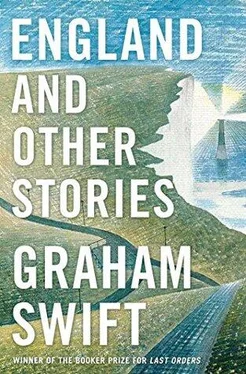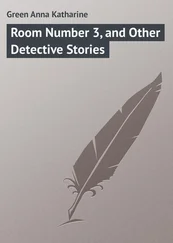The dog came from nowhere. If it was one of the many dogs he’d been loosely holding in his view, it still seemed that it hurled itself from a different place, as if through some unperceived screen, and there it suddenly and loudly was. And it was one of those breeds of dog that weren’t supposed to be let off leads, or even to be owned by people, or even, possibly, to exist at all. But there it was, and it was mauling — no, it was attacking — a child strapped in another buggy on the edge of the play area. Another little girl of less than two, with pale blonde curls, only yards away. With a father and mother who appeared to be momentarily paralysed.
It seemed that he too was suddenly on the scene, like the dog — that to others looking on it would seem that he too had sprung without warning from nowhere. It seemed so even to himself. Who was this man? He was suddenly grasping, grappling with a vicious snarling dog (whatever its behaviour had been just seconds ago), a dog that, but for his action and the sturdiness of modern buggy accoutrements, might have had in its mouth, in its claws, a helpless defenceless child.
The little girl was screaming and the dog must have been making a terrible row. People all around must have been yelling, but he didn’t hear them or care, and he didn’t even care, for some reason, if this dog was about to savage his own flesh or claw out an eye. He was going to stop it .
For a moment it writhed in his weird embrace, he felt the uncontainable spasm of its muscles — yes, it was going to bite his face off — but he wrenched it somehow from the buggy, then, as it shot from his clutches, it lost its balance and he was able to kick it, kick it hard , in the ribs, in the head, in its skidding legs, he didn’t care. He’d won the battle, he knew, it had been a matter of seconds. Were people cheering? But he kicked it, and kicked it again.
He knew too, even as he did this, that the outcome of this episode would be that the dog would be put down. A dog that attacks a child. No arguments. It was what would happen. He could already picture the child’s father — galvanised now into action — speaking righteously into a mobile phone, gathering a circle of witnesses round him. This is what would happen. And he would be a principal witness, and in some people’s eyes a hero. And the dog would be put down. Professionally.
But he kicked it as if to save them the trouble. He kicked it even when it was beaten. He didn’t care about its owner, who must be somewhere. The owner of a dog like this wouldn’t, or couldn’t, entrust it to a dog-walker, and the owner of a dog like this would only own it in order to feel a vicarious power. Yes, that was why people had dogs (he’d never had one), in order to have the illusion of mastery and control.
It was all split-second stuff, but he kicked it more than once, enough for him to imagine that when people later discussed his daring action they might add, ‘But did you see the way he kicked it?’ Enough for him to think (and this was perhaps what made him stop): What would Lucy think, of her father furiously kicking a dog? Would she grow up with this whole scene indelibly imprinted on her? Her first and enduringly scarring memory of her daddy.
But of course it was for her that he’d done it, it was because the child in the buggy might so easily have been—
Lucy in fact, he realised, was bawling, screaming. Some well-meaning bystander was seeking to comfort her. Other buggy-bound infants were also in a state of howling terror, or else of white-faced shock, at what had happened to another of their kind, and thus at what could happen — it was plainly possible — to them. Lucy wasn’t concerned with the gallant actions of her father, she was concerned with her own appalling vulnerability, and she was particularly concerned with the fact that her father had taken his hands off the buggy, thus abandoning her to such horror.
He quickly went to her, to place his hands back on the handles, and almost at once, as if some electric current of safety and assurance, or of something deeper, had passed between them, she was calm again, she was almost her untroubled self again.
‘It’s okay, Lucy, everything’s okay. I’m here.’
In a matter of moments she even began a subdued, speculative version of her customary burbling, as if this encounter with a dog, from which her father had come off visibly discomposed (he realised he was shaking a bit), was already moving out of her mental compass. She seemed, in mere seconds, almost to have forgotten it — never mind bearing the image of it for the rest of her life. Her father, wrestling with a dog! This rapid shift both relieved him and disappointed him.
‘It’s okay. Everything’s okay.’
They had to hang around for some time while the matter was dealt with — while a parks policeman (so parks policemen had a purpose) arrived and notes were taken and calls made, and while he tried not to listen to comments being uttered about him. ‘He was amazing. . Just think what might have happened, if he hadn’t. . Just think what might have happened — you know — to that little kid. .’
He could have done without it all. He had never in all his fifty-six years heard himself being called amazing, but he could have done without it. All the while he kept his hands very tightly on the buggy handles, except when he stooped to pat and stroke Lucy’s head. His place was with Lucy. He wasn’t even interested, now, in the poor child he’d rescued — had he been told its name? — whose life he’d quite possibly saved. That wasn’t so far-fetched. It wasn’t every day that you, possibly, saved a child’s life.
He wasn’t interested in the sudden paean he was getting — distress turning to relief and almost hysterical gratitude — from the child’s mother. ‘How can we ever thank you enough? How can we ever repay you?’ That sort of thing. He actually wanted to say, ‘Control yourself, woman.’ He said, ‘It was nothing.’ He wasn’t interested in his own patent prowess. He’d moved like lightning. Younger men around him — twenty-eight-year-olds! — had stood rooted to the spot. He didn’t have any of these feelings.
And he wasn’t interested in the dog, least of all. He knew it was done for.
He wanted to get away. He wanted just to be pushing Lucy again. There was no question now of spending any time with her in the play area, where all activity seemed suspended anyway. He knew that she wouldn’t feel let down by this. It was the buggy ride that mattered.
Eventually, with anxious looks at his watch, he excused himself and edged away. He had his own child to look after — clearly. Her mother would be wondering. No one seemed surprised that he said ‘child’ not ‘grandchild’. It wasn’t a rare phenomenon. And anyway he’d just behaved with the speed and agility, not to say sheer ferocity, of someone half his age.
He pushed Lucy back the way they’d come, alone with her again and totally in love with her, listening to her burblings resume their joyful commentary. It was as if nothing had happened. He very much wanted it to be as if nothing had happened. He envied his daughter’s eclipsing amnesia. He didn’t want to tell Julia about any of this. He looked at his watch again. Allowing for the time they might otherwise have spent at the play area, they wouldn’t be unduly late back, so he need say nothing.
But of course word about the incident, in which he’d played such a central and dramatic role, was bound to get around to Julia, and pretty quickly, through the local grapevine. And there was the simple obvious fact that he himself bore the immediate evidence of something. Though his hands were firmly guiding the buggy he knew he was still shaking, he was shaking in fact quite a lot. He needed to grip the handles to stop it. There was a big streak of mud down one of his trouser legs, there was a tear at one knee, and if his face and hands seemed, remarkably, to have come away unscathed, his jacket was in several places snagged if not actually torn. That was all right. You could replace clothes, with some money. He hadn’t wanted any money from that child’s mother, though she’d offered it, she’d offered to replace his entire wardrobe. She was blonde and totally at his service. It seemed that she might offer him anything.
Читать дальше












